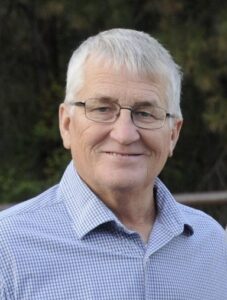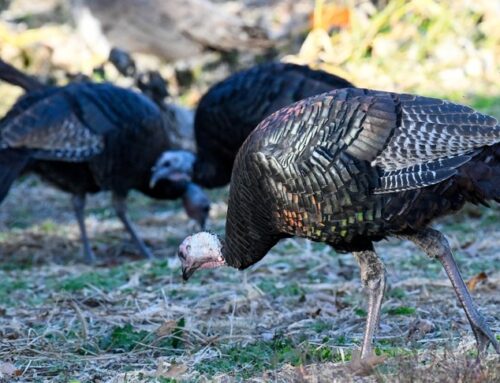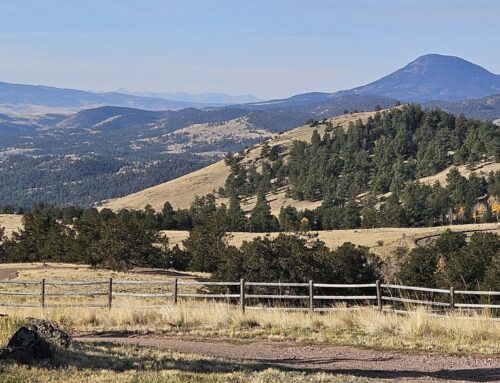Subscribe for Bulletins delivered right to your inbox.
Happy Birthday National STAR
In this issue, National STAR is celebrating the progress and success of state efforts, the release of new tools and resources for supporting Affiliates and producers, and the value that producers are seeing from STAR as they navigate through conservation practice and program opportunities. There is new energy emerging around this standardized, streamlined, and simplified approach to comprehensively support all types of producers who may be at different stages in their understanding and adoption of conservation and who may have different motivations for continuing or changing practices or taking the next steps along the way. National STAR is excited to see Affiliates developing and growing, and enthusiastic about how customized STAR frameworks and tools can help producers with decision making. We hope you will join us on this journey!
STAR News and Updates
2024 STAR Enrollment Open in Illinois, Indiana, and Iowa!
STAR enrollment for crop year 2024 using the Illinois Field Form is open in Illinois and Indiana. In Iowa, modified Illinois forms are available this year to jump start producer participation as a fully customized Iowa field form and scoring system is being finalized for next year. Open enrollment means that farmers can enroll in STAR using the new STAR WebTool. In Illinois, prioritized 2024 enrollment is open through November 1, 2024, for farmers interested in specific cost-share programs, with general enrollment ongoing. Through a quick and easy process, producers will identify their fields, provide management and conservation practice information, receive a STAR score for their field, and have options to order a STAR field sign, connect with a STAR Navigator for individual technical assistance, and explore resources and programs, including a variety of incentives. The Conservation Innovation Plan (CIP) feature for customized conservation planning and resource matching will be available later this fall. To learn more about the simple STAR enrollment process, visit our website.
STAR Welcomes a New Board Member, Dennis Carney
 We are pleased to welcome Dennis Carney to the STAR Board of Directors. Dennis is a retired fifth generation grain farmer from north-central Iowa, who graduated from Iowa State University with a degree in agronomy and a strong interest in soil conservation and water quality strategies. With support from his grandfather and some temporary objections from his father, Dennis began no-till farming all their cropland in 1985 and initiated cover crops in 2012.
We are pleased to welcome Dennis Carney to the STAR Board of Directors. Dennis is a retired fifth generation grain farmer from north-central Iowa, who graduated from Iowa State University with a degree in agronomy and a strong interest in soil conservation and water quality strategies. With support from his grandfather and some temporary objections from his father, Dennis began no-till farming all their cropland in 1985 and initiated cover crops in 2012.
Dennis served as FSA county committee chairperson for almost twenty years and then as a Soil and Water Conservation County Commissioner for approximately ten years. He became active in Iowa’s state association of conservation districts, Conservation Districts of Iowa, and served six years as an officer, including two years as president. While representing Iowa on the national level, he became aware of the STAR program and supported its adoption within Iowa.
Now retired from active farming, Dennis and his wife moved to the mountains of Colorado to be closer to their two sons, daughters-in-law, and grandchildren. Dennis now leases his cropland to a young area farmer; the lease requires his renter to maintain and enhance his conservation efforts by using the STAR program to evaluate, implement, and value conservation strategies.
STAR Board Meets in Illinois
Earlier this month, national STAR board members, consultants, and some staff met in Chicago, Illinois for brainstorming and planning sessions to contribute to STAR’s development and success.

Opportunity to Work with STAR in Polk County, Iowa
Through the Central Iowa Land Stewardship Project, landowners and farmers have new opportunities to make the best decisions related to both water quality and farm profitability. The Polk Soil and Water Conservation District (SWCD) team will provide participants with a free, non-binding review of their farming practices to make suggestions related to water quality and low yield/unprofitable acres. Polk SWCD is making use of the STAR framework to help develop the baseline farm conservation assessments.
After collecting baseline information, the SWCD team will evaluate alternative farming techniques or alternative land use options on low yielding or unprofitable acres with the goal to reduce input costs, increase profitability of acreage and to reduce nutrient pollution due to excess nutrient application. Read more about this opportunity and apply.
STAR in the News
Illinois STAR Promotes Sustainable Farming Practices
Farm Week Now, August 2024
Farmers have until Nov. 1 to enroll in Illinois Saving Tomorrow’s Agriculture Resources (STAR). “STAR is a free conservation tool created for farmers by farmers” said Illinois STAR Coordinator Natalie Kerr. “It offers them a way to make voluntary conservation decisions.” The goal of STAR is to encourage sustainable practices, helping farmers meet nutrient loss reduction strategy (NLRS) goals. “Practices that STAR encourages will also result in improved soil health,” Kerr shared at a Champaign County Soil and Water District (CCSWCD) field day in Hammond. Read more about opportunities for Illinois producers to participate.
Rock Island County-Owned Farmland Awarded 5-STAR Conservation Rating
Quad Cities Regional Business Journal, July 2024
Through the efforts of the Rock Island County Board and farmer Mike Breiby, the land known as the County Farm has been awarded a 5 STAR by the county’s Soil and Water Conservation District (SWCD). That’s the highest rating on the STAR scale.
“We are very pleased with the forethought and efforts of the county board in implementing conservation practices that will maintain and preserve the rich soil on this farm for generations,” Rich Stewart, resource conservationist for county SWCD, said in a news release announcing the rating.
The farmland is located in Rural Township near Coal Valley, Illinois. The county-leased farm earned the SWCD’s high rating based on implementing several conservation practices. They included grassed waterways, water and sediment control basin, grass filter strips, pollinator habitat for Monarch butterflies and upland wildlife habitat buffers for Bobwhite Quail. Read the full article here.
STAR Producer Spotlight – Jake Stricklin
Recently, Jake Stricklin, a farmer participating in STAR and in the Soil and Water Outcomes Fund (SWOF) sat down to talk about how he got into farming, his experiences with cover crops and strip till, and why he is participating in both STAR and SWOF programs in Illinois.
In addition to farming 450 acres of corn and soybeans, Jake also serves on the Board of Directors for the LaSalle County Soil and Water Conservation District. Over the past few years, he has steadily implemented conservation practices on all his farm acres and is now helping other farmers throughout the county plant cover crops, highlighting opportunities for reduced tillage, and advising farmers based on his experiences. Read the full interview.
Your family’s farm and legacy are very important to you. How do you think conservation programs like SWOF and STAR help?
All of us in the world of farming and conservation want to be able to help preserve the land for the next generations to come. With that in mind, soil health, water quality, creating habitat, increasing soil biology, and overall conservation are all areas where we align. We are all helpers, and these programs want to help farmers to build their operations with conservation in mind while still helping them make a profit.
After only a few years, I’ve earned some of my equipment investment back. Additionally, I’ve had a lot of farmers interested in what I’m doing on my farm, so they’ve hired me to apply cover crops to their fields and manage those crops. I’ve been speaking publicly on the value of cover crops and my experience.
SWOF and STAR have been a big help – not only for the financial incentives but for the information they provide us. We use the STAR Field Forms to better understand what we’ve done and what more we can do for conservation measures. I’m using SWOF and STAR now in my role with the conservation district and every farmer that works on a conservation cost-share project with us here at the district fills out a STAR Field Form. We use this information to help the producer implement and improve their conservation measures at their own pace over time. Seeing those points and stars increase is always a rewarding experience.
Conservation in the News
More Than Two Tillage Passes is Never Profitable According to New Data
Precision Conservation Management (PCM) recently released a summary of 9 years’ worth of in-field conservation data from Illinois farms. Through their data analysis, PCM aims to identify conservation practices that effectively address environmental issues without risking the farmers’ bottom line. One section of the report compares various tillage systems and analyzes the profitability of each for corn and soybean fields. According to PCM data, the most frequently observed tillage systems on the most profitable acres were one-pass light tillage for corn (one pass with low-disturbance tillage) and no-till for soybeans. This same trend was seen for fields with both high and low soil productivity ratings throughout Illinois. In both cases, less than 4% of the most profitable fields were managed with 3 or more tillage passes. Strip tillage has also shown promise as a profitable option with corn production in recent years. Read the full summary report.
STAR Team Presents at Recent Soil and Water Conservation Society Annual Meeting
STAR had a full presence at the recent 2024 annual Soil and Water Conservation Society meeting. National STAR team members Caroline Wade and Amanda Raster presented a poster on STAR science development and spoke with attendees on the work STAR is doing with states to help producers choose conservation as the standard on all agricultural lands. Lauren Quackenbush from Washington STAR gave a presentation on progress at the state level and representatives from STAR Affiliates in New Mexico and Colorado also attended the meeting.
STAR will be attending a few additional important events this fall – look below at where we’ll be and stop by and say hello if you are also attending.

STAR team members presenting at the SWCS meeting.
See STAR Soon at…
Regenerative Food Systems Investment Forum
The 2024 RFSI Forum will take place October 9-10 in Denver, Colorado. With 450+ attendees, 45+ speakers and 9+ hours of networking, the Regenerative Food Systems Investment (RFSI) Forum is the ONLY event that exclusively brings together investors, food and agriculture entrepreneurs, and critical stakeholders working to build resilient food systems. Caroline Wade and STAR Board Member Cindy Lair will attend. Read more and register.
New Mexico Association of Conservation Districts (NMACD) Annual Conference
The NMACD 78th Annual Conference will be gathering in Albuquerque, NM at the Sheraton Albuquerque Uptown October 28th through the 30th. Two members of the STAR team – Caroline Wade and Max Neumeyer – will attend and have a table on STAR offerings and opportunities. Read more and register.


